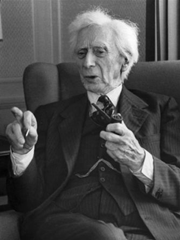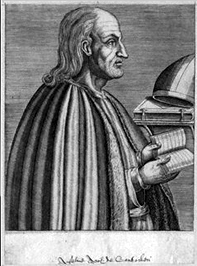 The Christian blogs these days seem to be erupting with outrage over a short cartoon sequence in the new Cosmos TV show. The segment in question tells the story of Giordano Bruno, and it’s… well, cartoony, both literally and figuratively. That’s not shocking on its own, the science itself in Cosmos is cartoony: biologists will cringe at inaccurate representations of a DNA molecule, astronomers will face palm when Tyson’s spaceship avoids planetoids that are in reality many orders of magnitude farther away from one another. It’s the nature of the exercise: trying to convey complex ideas to an uninitiated public in simple and entertaining images, will require simplifications, dramatization, shortcuts, and even that you’ll occasionally be plain wrong. Being a science show, maybe it was sloppier and more caricature on the history. I don’t know, I’m no historian. As long as deception is not deliberate and central to the discourse…
The Christian blogs these days seem to be erupting with outrage over a short cartoon sequence in the new Cosmos TV show. The segment in question tells the story of Giordano Bruno, and it’s… well, cartoony, both literally and figuratively. That’s not shocking on its own, the science itself in Cosmos is cartoony: biologists will cringe at inaccurate representations of a DNA molecule, astronomers will face palm when Tyson’s spaceship avoids planetoids that are in reality many orders of magnitude farther away from one another. It’s the nature of the exercise: trying to convey complex ideas to an uninitiated public in simple and entertaining images, will require simplifications, dramatization, shortcuts, and even that you’ll occasionally be plain wrong. Being a science show, maybe it was sloppier and more caricature on the history. I don’t know, I’m no historian. As long as deception is not deliberate and central to the discourse…
 Yet another supposedly gotcha question that irrational people often ask in order to unsettle their interlocutor: “can you know anything with 100% certainty?” Well, of course I can, and so can you...
Yet another supposedly gotcha question that irrational people often ask in order to unsettle their interlocutor: “can you know anything with 100% certainty?” Well, of course I can, and so can you...
 Michael, on his way to establish the infallibility of the Catholic Church, makes the claim that consistency is the defining characteristic of truth:
Michael, on his way to establish the infallibility of the Catholic Church, makes the claim that consistency is the defining characteristic of truth:
The hallmark of truth is consistency. Error can always be shown, at the core of the argument, to be logically inconsistent and ultimately selfrefuting. Ergo, consistency is contingent to any claim of truth.
This is of course an error of monumental proportions.
 Over the past few weeks, I had an interesting discussion on Facebook with Michael, a militant Catholic, about the Catholic Church’s claim that it is infallible. Like many arguments with believers, this has rapidly morphed from a single simple problem into a full-blown Gish Gallop. I should know better, but I bit. This series of posts is a compilation of my answers to his claims.
Over the past few weeks, I had an interesting discussion on Facebook with Michael, a militant Catholic, about the Catholic Church’s claim that it is infallible. Like many arguments with believers, this has rapidly morphed from a single simple problem into a full-blown Gish Gallop. I should know better, but I bit. This series of posts is a compilation of my answers to his claims.

There are only two people that I didn’t know, whose death made me cry: Pierre Desproges and Douglas Adams. Both wrote prodigious comedy with surprising depth, but Adams was also an outspoken Atheist, and used science as a foundation of his storytelling. Preferably weird science, like quantum mechanics.
 Yet another response to Ambrose, whose blog doesn’t like that my comments tend to have more than 4,000 characters... He says:
Yet another response to Ambrose, whose blog doesn’t like that my comments tend to have more than 4,000 characters... He says:
"the underlying argument is that religious freedom is not absolute in the US. There have been Supreme Court cases, such as not allowing polygamy, where it has been limited."
Yes, all freedoms have limitations, which is not a big deal. In the case of religious freedom though, religious people in my experience tend to believe that it means that if their holy book mandates something, it should trump the laws of the state, or that no new law can go against what they believe. This would of course be impossible except in a single-religion theocracy
 This is an answer to Ambrose’s answer to my answer to his post on atheists. Comment fields are just too small, so we exchange blog posts. Feel free to ignore me as I talk to Ambrose…
This is an answer to Ambrose’s answer to my answer to his post on atheists. Comment fields are just too small, so we exchange blog posts. Feel free to ignore me as I talk to Ambrose…
 If you’re out of the closet as an atheist, there is a number of canards that you will hear a lot. One of them is that Atheism requires more faith than religion. Whole (bad) books have been written on that “idea”. Ambrose has a new post on this entirely unoriginal topic, and he gets everything predictably wrong.
If you’re out of the closet as an atheist, there is a number of canards that you will hear a lot. One of them is that Atheism requires more faith than religion. Whole (bad) books have been written on that “idea”. Ambrose has a new post on this entirely unoriginal topic, and he gets everything predictably wrong.
 Logic is a tricky thing. Any sound argument must rely on it, but it is easy to build seemingly sound and logical arguments that are still wrong or fail to apply to the real world. Fuzzy or wrong premises, shortcuts in reasoning, as well as plain fallacies such as circular reasoning, are easy to obfuscate, and apologists are kings at this game. It's what they do: take the conclusion they want to reach, and then build the rationalization for it. A prime example of this is the age-old ontological argument for the existence of God, that I will be looking at in details in this post.
Logic is a tricky thing. Any sound argument must rely on it, but it is easy to build seemingly sound and logical arguments that are still wrong or fail to apply to the real world. Fuzzy or wrong premises, shortcuts in reasoning, as well as plain fallacies such as circular reasoning, are easy to obfuscate, and apologists are kings at this game. It's what they do: take the conclusion they want to reach, and then build the rationalization for it. A prime example of this is the age-old ontological argument for the existence of God, that I will be looking at in details in this post.
